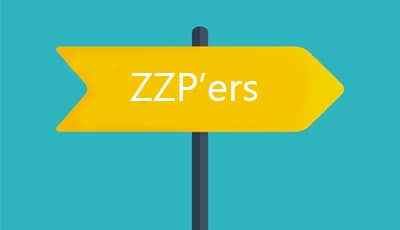What agreements do I need as a self-employed person
As a self-employed professional, it is important to have your legal affairs in order. But which agreements do you actually need? How do they provide a clear framework between you and your client? And why is it so important to conclude not only general terms and conditions, but also processor agreements or model contracts? We at Striive answer the most frequently asked questions surrounding the agreements you may need as a zzp'er.
What exactly do we mean by agreements as a self-employed person?
An agreement is an agreement between two or more parties on mutual rights and obligations. For self-employed persons, this mainly concerns agreements with clients, partners or suppliers. Think of an assignment agreement, a processing agreement (if you process personal data), or a cooperation agreement with another freelancer. The aim is to make it clear to all parties who is responsible for what, what is delivered and what the financial settlement looks like. This prevents ambiguities and possible disputes in the future.
Why are agreements so important?
Without agreements, it is more difficult to enforce your rights and obligations. A good agreement prevents disagreements afterwards about what exactly was intended. Clients also like to see that you take your business seriously, which increases trust.
And, of course, compliance with laws and regulations. With the emergence of the wWet DBA (Deregulering Beoordeling Arbeidsrelaties) and the ongoing focus on sham labour market constructions, it is all the more important to demonstrate that there is no disguised employment relationship.
Which basic agreement can I use?
Many zzpZP'ers opt for an assignment agreement, also known as a freelance contract. In it, you lay down who the parties are, what will be delivered, at what price and within what period. It also often contains provisions on confidentiality, notice periods, property rights and possible penalty clauses. As a zzpZP'er you are usually the data controller for your own data and billing, but in this agreement you can also include ground rules on how you handle client data.
Model agreements
In some cases, it can be useful to use a model agreement. These are contracts that have been tested by the Tax Office and provide clarity on the relationship of authority and the risk of salaried employment. If you act strictly according to such a model agreement, you are less likely to be classified as a disguised employee afterwards. Keep in mind, however, that you cannot just adopt a model agreement, as the content must match your own work practices. And if the actual situation on the shop floor differs from the contract, the model agreement can still be found invalid.
What about non-disclosure agreements?
If you work with confidential information such as trade secrets or client files, a non-disclosure agreement (NDA) may be wise. This is a non-disclosure agreement that prohibits you from sharing certain information with third parties. Even though it is not always necessary, a client may ask for it if they are afraid competitors might profit from it.
Drafting an NDA is relatively simple. You lay down what information is considered confidential, what exceptions there are (e.g. if you obtained the information through a public source) and what the sanctions are in case of breach.

How is the government looking at zzp contracts in the future?
The government regularly announces plans to combat sham constructions. Examples include strengthening enforcement by the Tax Office and possible introduction of a minimum hourly rate for self-employed workers. New legislation to replace the DBA Act cannot be ruled out either.
Although the details are not all set yet, the trend is clear: there will be more emphasis on transparency and preventing abuse. This means that agreements for zzp'ers are likely to become even more important, as they allow you to prove that there is no employment.
What if a client does not want an agreement?
Some clients try to keep administration to a minimum, but as a self-employed person, you are then at risk. You are ultimately liable for your own tax and legal situation. So it is in your own interest to enter into a good agreement anyway, even if the client is not keen. Explain calmly that it protects not only you, but also them.
Laying down agreements creates clarity and prevents conflicts. If the client continues to refuse, the question is whether you want to work with someone who has little regard for mutual legal certainty.